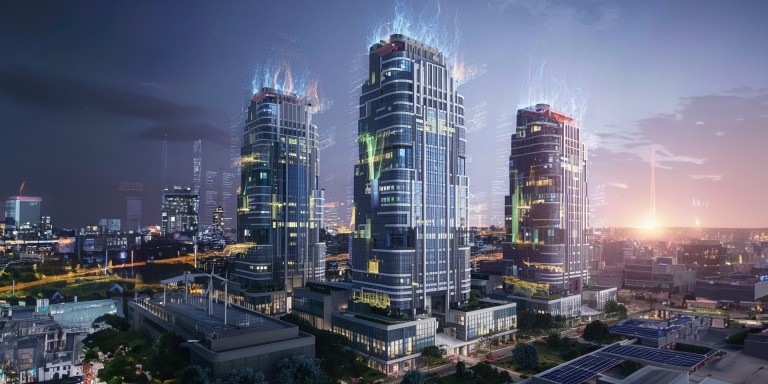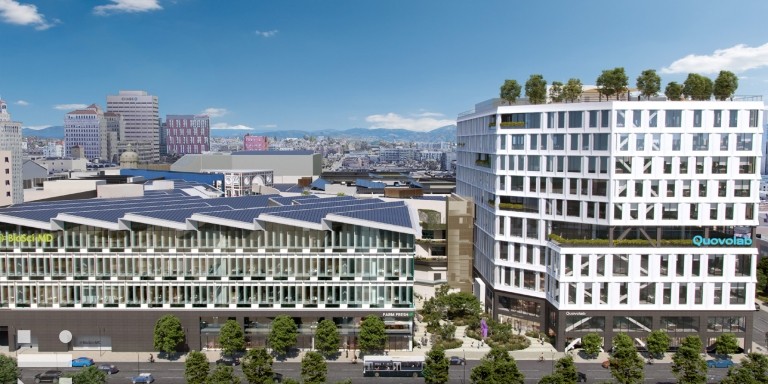Transforming STEM Education: UVA's Renovated Science Complex

A Vision for the Future
The rejuvenated Chemistry, Biology, and Psychology complex at the University of Virginia (UVA) is back in operation after the completion of a seven-year major renovation project. This 250,000 ft² complex houses departmental offices as well as teaching and research labs. The project required phased replacement of all mechanical and electrical systems while keeping the Chemistry and Biology research labs in operation. UVA's commitment to energy and carbon reduction and reuse of existing campus buildings helped lead the design team's effort to reduce energy consumption in this science complex by nearly 60% and dramatically improve lab environmental safety.
State-of-the-Art Facilities for 21st Century Learning
Central to the project's vision is the creation of a collaborative environment that fosters interdisciplinary research and discovery. By breaking down traditional barriers between departments and promoting enhanced student-faculty interactions, the renovated complex aims to catalyze groundbreaking scientific inquiry. The renovated complex features state-of-the-art facilities tailored to the needs of modern teaching and research. From cutting-edge wet labs to computational research spaces, every aspect of the design is geared toward inspiring and facilitating learning.
Embracing Sustainability and Environmental Stewardship
The project team's commitment to sustainability and environmental stewardship is demonstrated through innovative design strategies and energy-efficient technologies. Introba provided design analytics support for the modeling of glazing and shading elements for the façade replacement of the Biology Building, as well as a detailed analysis of mechanical system performance resulting in a staggering 60% reduction in energy consumption, setting a new standard for sustainable construction in academia.
Collaboration and Stakeholder Engagement
Achieving such ambitious goals required close collaboration and engagement with all stakeholders involved. In partnership with UVA's diverse community of stakeholders, the project team worked to navigate the complexities of modern construction while staying true to its core principles. Introba's MEP design team worked closely with architects Perkins&Will to evaluate mechanical and electrical system options to provide cost-effective, high-performance, integrated solutions to achieve the targeted performance goals. The stakeholder engagement team from UVA included the science user groups, the University Architect, Facility Engineering, Maintenance, Sustainability, and Environmental Health Safety members.

Shaping the Future of STEM Education
The renovated complex at UVA stands as a testament to the power of design vision and perseverance in performance. The project result is a complete transformation of these buildings, providing a new, vibrant, efficient, and safe home for the science departments.
Project Highlights:
-
60% Energy Reduction
-
Building reuse carbon reduction
-
Phased/occupied renovation
-
Daylighting optimization
-
Tailored mechanical systems by space type
-
Chilled beams and fan-powered terminal cooling units
-
Airside energy recovery, including lab exhaust
-
VAV flow tracking fume hoods and lab exhaust
-
Extensive lighting and plug load controls

----
This project is a winner of our 2023 Introba Awards initiative in the Embracing Change category, recognizing work that embeds resilience, adaptability, and flexibility into projects.
The Introba Awards, a competition juried by external industry professionals, seek to discover, recognize, and reward the very best work done by Introba employees. Our awards categories are inspired by our Living Systems approach, helping us ideate and tackle complex design challenges and improve the performance of our business.
Learn more about the University of Virginia Life Sciences Building in the project profile below.
Related News
-
Apr 29, 2024
How iPerform Can Radically Improve Your Building’s Performance
Insights & Perspectives -
Apr 22, 2024
The key to business success is timing
Insights & Perspectives -
Mar 29, 2024
An Urban Renewal Blueprint: Transforming Horton Plaza
Insights & Perspectives




